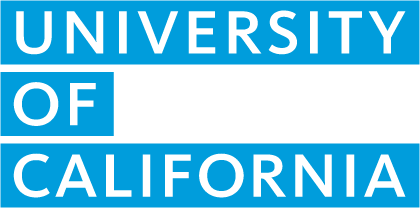Schools
School A-G course list registration
Schools can register for an A-G course list anytime during the year. If you register when the course submission period is closed, you will need to wait until the next course submission period opens on February 1 to begin submitting courses.
Any public or private California high school may establish an A-G course list if they are accredited (see accreditation details for more information) and a diploma-granting institution. Non-California high schools are not eligible to establish A-G course lists with the exception of online schools that serve California students.
Before completing the registration form, schools should be ready to provide:
- A school code from The College Board
- Proof of accreditation (official letter or certificate) as a high school from one of the UC-recognized former regional accrediting agencies
- County-District-School (CDS) code
- If your school is accredited by one of the agencies other than WASC, a statement explaining why.
Online schools
In addition to meeting the requirements for all school types, online schools need to complete a self-assessment, included in the new school registration form, to ensure the school operates according to the National Standards for Quality Online Programs.
Non-classroom based/independent study schools
Non-classroom based/independent study schools are public, charter, or private high schools in which at least half of the students receive 80 percent of their instruction off campus. Schools that provide all or most of their courses through internet-based methods, with time and/or distance separating the teacher and student will instead abide by UC’s online school policy.
Non-classroom based/independent study schools are expected to meet the following criteria to maintain an A-G course list and offer A-G approved coursework:
- Students are expected to spend at least one hour per week per A-G course engaged in interactive instruction and/or academic tutoring/advising.
- Students are expected to have regular access (i.e., at least weekly) to a teacher who is a subject expert teacher* in that subject area.
- Students taking an approved A-G course should receive prompt responses to inquiries.
- Students should be assessed to ensure mastery of the content standards. Acceptable assessments include, but are not limited to, tests, essays, projects, research papers, presentations and exams. All courses must require a final exam or a significant final project.
- Major assessments (i.e., unit tests, final exams) shall be proctored by a qualified professional (e.g., a school teacher, administrator, or counselor).
- Student work shall be evaluated by an impartial professional who has been actively involved in the student’s learning process.
* A subject expert teacher is defined as an instructor who has taught in a particular subject area for at least three years at the high school or postsecondary level OR has a teaching credential and a bachelor’s or advanced degree in the subject area OR has been certified as a Highly Qualified Teacher under the federal No Child Left Behind Act.
Accreditation
In December 2002, the Board of Admissions and Relations with Schools (BOARS) approved a policy that requires all public and private schools to be accredited in order to establish and maintain an A-G course list.
The University requires accreditation because this process (1) ensures effective quality control of college-preparatory work at high schools, and (2) offers the choice for schools to affiliate with an accrediting agency that assures quality and responsiveness to local needs. This UC policy is consistent with relevant state law and with the goals of the BOARS committee.
The former regional agencies that perform high school accreditation on behalf of prospective students and their high schools are:
- Accrediting Commission for Schools - Western Association of Schools and Colleges (WASC)
- Middle States Association of Colleges and Schools Commissions on Elementary and Secondary Schools (MSA)
- New England Association of Schools and Colleges (NEASC)
- Cognia Accreditation Divisions:
- North Central Association Commission on Accreditation and School Improvement (NCA CASI)
- Northwest Accreditation Commission (NWAC)
- Southern Association of Colleges and Schools Council on Accreditation and School Improvement (SACS CASI)
As of July 2020, UC highly recommends accreditation by the Accrediting Commission for Schools - Western Association of Schools and Colleges (WASC) for California high schools seeking to establish and maintain an A-G list with the university. Schools granted candidacy for accreditation by WASC are also eligible to register for an A-G course list. Given WASC’s vast statewide network, including its longstanding partnerships with both UC and the California Department of Education, WASC is well positioned to be closely attuned to California’s secondary education needs and objectives.
Course list managers can update school’s accreditation on the A-G Course Management Portal. Schools whose accreditation is through one of the regional agencies other than WASC will be asked to provide a statement of explanation so the University has a record of the institution’s reasons for doing so.
Charter schools
UC uses two labels to distinguish charter schools based on the relationship of the charter to the district:
- Dependent - charter schools that have been created and funded by the district board and are considered an integral part of the district’s schools
- Independent - typically those charter schools that are formed and directly funded by parents, teachers, community members or charter school networks
